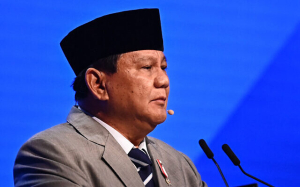Indonesia's OECD accession, a strategic move with complex implications: Celios
As Indonesia progresses towards joining the Organisation for Economic Cooperation and Development (OECD), experts weigh the potential benefits and drawbacks of this decision, highlighting the strategic considerations and economic impacts.
“Indonesia's decision to pursue OECD membership is strategically sound, particularly in comparison to joining the BRICS economic bloc, which consists of Brazil, Russia, India, China, and South Africa,” Bhima Yudhistira, Executive Director of the Center of Economic and Law Studies (Celios), said as quoted by Katadata.co.id on Monday, July 29, 2024.
Yudhistira notes that Indonesia's existing strong trade and investment ties with China lessen the immediate need to join BRICS.
Indonesia already enjoys substantial economic cooperation with China, such as the ASEAN-China Free Trade Agreement and the Local Currency Settlement framework between the yuan and the rupiah.
Additionally, Indonesia has been a major recipient of investment under China's Belt and Road Initiative, including significant projects like the Jakarta-Bandung high-speed rail and nickel processing facilities.
From a geopolitical perspective, Yudhistira argues that aligning with BRICS could complicate Indonesia's balanced foreign policy, which aims to maintain equal relations with both Western and Eastern blocs. Indonesia's non-aligned stance is seen as crucial for maintaining its diplomatic flexibility.
In contrast, Malaysia has officially applied to join BRICS, with support from Russia. Its government sees potential BRICS membership as a means to enhance economic collaboration, underscoring a shared regional interest in expanding economic ties with emerging economies.
Eko Listiyanto, Deputy Director of the Institute for Development of Economics and Finance (Indef), emphasizes that both Indonesia's move towards the OECD and Malaysia's interest in BRICS aim to enhance economic growth.
However, the two paths reflect different strategic priorities: while BRICS focuses on trade cooperation, the OECD offers more comprehensive institutional development opportunities, including standards for transparency, anti-corruption measures, and sustainability.
Mohammad Faisal, Executive Director of the Center of Reform on Economics (CORE), highlights potential downsides for Indonesia joining the OECD.
“The OECD membership could result in the loss of certain benefits currently available to developing countries, such as concessional tariffs for exports to developed markets like the United States,” he said.
Also, this shift could impact key sectors of Indonesia's economy that rely on these trade advantages.
As Indonesia considers its future within the OECD, the decision underscores a broader strategy of strengthening its institutional frameworks and aligning with global economic standards, despite potential trade-offs.
Furthermore, the move represents a calculated step towards greater economic integration and institutional reform, even as the nation navigates the complex landscape of international economic relations.
Tag
Already have an account? Sign In
-
Start reading
Freemium
-
Monthly Subscription
30% OFF$26.03
$37.19/MonthCancel anytime
This offer is open to all new subscribers!
Subscribe now -
Yearly Subscription
33% OFF$228.13
$340.5/YearCancel anytime
This offer is open to all new subscribers!
Subscribe now






